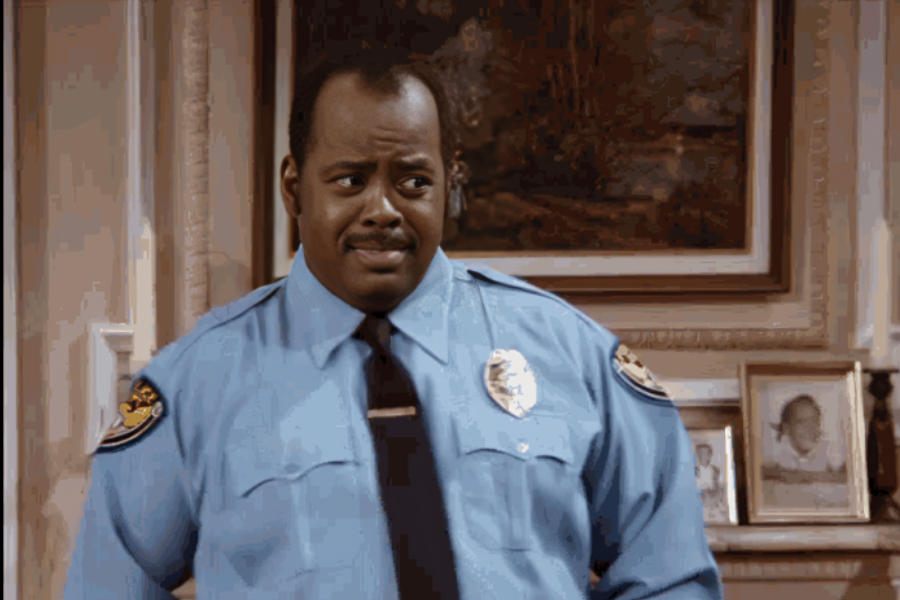In the golden era of sitcoms, few characters captured hearts as effortlessly as Carl Winslow from Family Matters. Portrayed by the talented Reginald VelJohnson, Carl Winslow became more than just a TV character; he evolved into a cultural symbol of family values, resilience, and humor. Set against the backdrop of Chicago, the show followed the Winslow family’s day-to-day adventures, tackling everything from light-hearted shenanigans to serious social issues. At the heart of it all was Carl Winslow, the patriarch who kept the family grounded.
Beginnings
Debuting in 1989 as a spin-off of Perfect Strangers, Family Matters quickly gained traction due to its relatable characters and compelling storylines. Carl Winslow stood out not only for his comedic timing but also for the layers of depth he brought to the show. As a police officer, husband to Harriette, and father to Eddie, Laura, and Judy, Carl embodied the struggles and joys of balancing family and professional life.
Family
Carl’s relationship with his family was central to the show’s charm. He wasn’t just a disciplinarian father; he was a protector, a guide, and a friend. His interactions with his children highlighted life lessons without feeling preachy. Whether it was teaching Eddie about responsibility, supporting Laura’s ambitions, or dealing with the antics of Steve Urkel, Carl’s character demonstrated patience and love.
One of Carl’s most memorable dynamics was with his wife, Harriette. Their partnership showcased a realistic and loving marriage, where both partners had equal voices. Their mutual respect and affection were a refreshing depiction of Black love on television during a time when such portrayals were limited.
Humor
Carl Winslow’s humor was a perfect blend of dad jokes, situational comedy, and exasperation—often brought on by the show’s standout character, Steve Urkel. The uninvited, accident-prone neighbor constantly tested Carl’s patience, resulting in some of the funniest and most quotable moments of the series. Yet, beneath his frustration, Carl’s fondness for Steve was evident. Their evolving friendship became one of the show’s emotional cores.
Representation
Carl Winslow’s character was groundbreaking for several reasons. As a Black police officer and family man, he offered representation that was both positive and multi-dimensional. At a time when media often stereotyped Black characters, Carl was a refreshing departure. He was shown dealing with challenges at work, grappling with systemic racism, and navigating familial obligations—all while maintaining his integrity.
Episodes like “Good Cop, Bad Cop” highlighted the complexities of Carl’s profession and his commitment to justice. In this episode, Carl confronts a fellow officer for racially profiling Eddie, addressing issues of police bias. Moments like these elevated Carl’s character from a sitcom dad to a symbol of moral strength.
Impact
The character of Carl Winslow resonated with audiences across generations. For many viewers, he was a reminder of their own fathers or father figures. His ability to blend sternness with compassion made him a role model. He wasn’t perfect, but his imperfections made him relatable.
Beyond the Winslow family, Carl’s interactions with the larger community—from his mother, Estelle, to Urkel’s inventions gone wrong—showcased his adaptability and sense of humor. Reginald VelJohnson’s nuanced portrayal ensured that Carl Winslow remained a beloved character long after the series ended in 1998.
Legacy
Over three decades since its premiere, Family Matters and Carl Winslow’s character continue to hold a special place in pop culture. The show’s timeless themes of family, love, and perseverance resonate even today. Carl Winslow’s influence extends beyond the screen, inspiring discussions about fatherhood, representation, and the role of family in shaping one’s values.
Reginald VelJohnson’s performance solidified Carl Winslow as one of the most iconic TV dads of all time. His legacy is a testament to the power of storytelling and the impact of well-crafted characters in shaping societal perceptions.
Conclusion
Carl Winslow wasn’t just a character; he was a movement. Through his humor, compassion, and unwavering commitment to his family, he taught viewers important life lessons while making them laugh. His representation broke barriers, and his legacy endures as a reminder of the power of authentic, relatable characters in television history. Whether you watched Family Matters during its original run or discovered it later, Carl Winslow remains a figure worth celebrating.
Get the latest scoop and updates on Twisters


